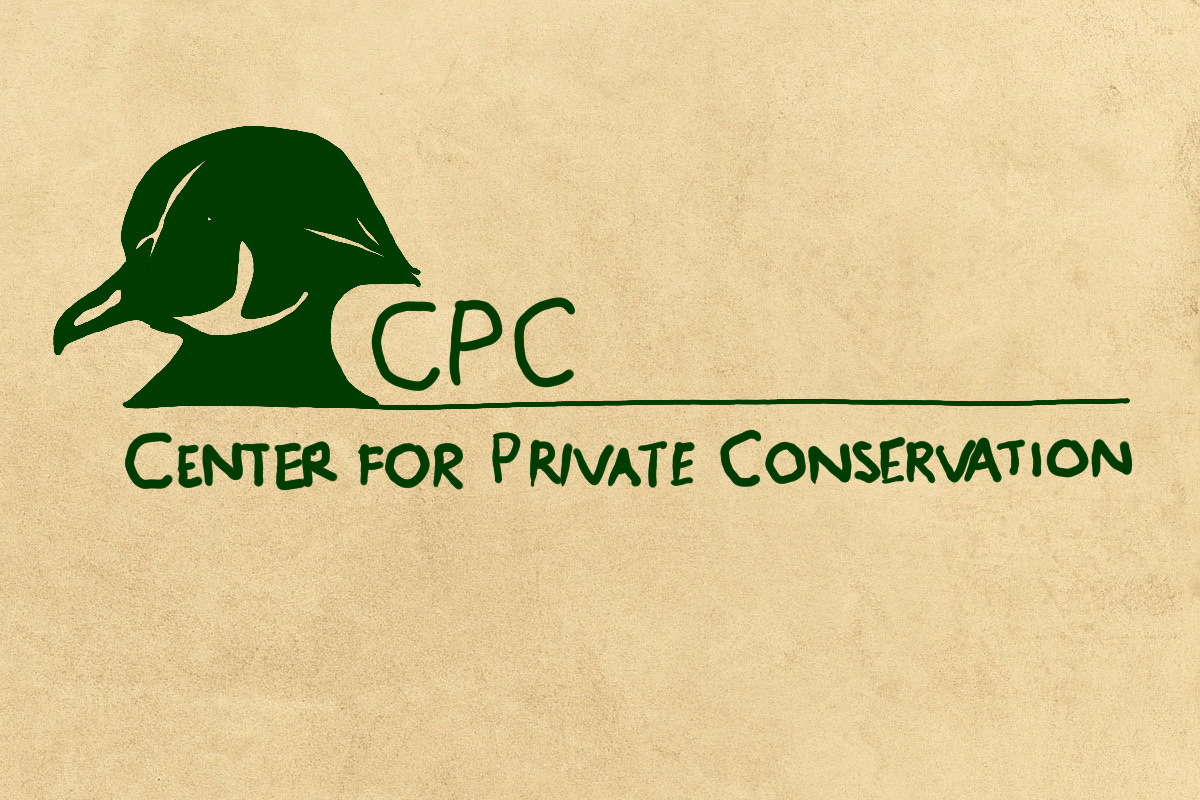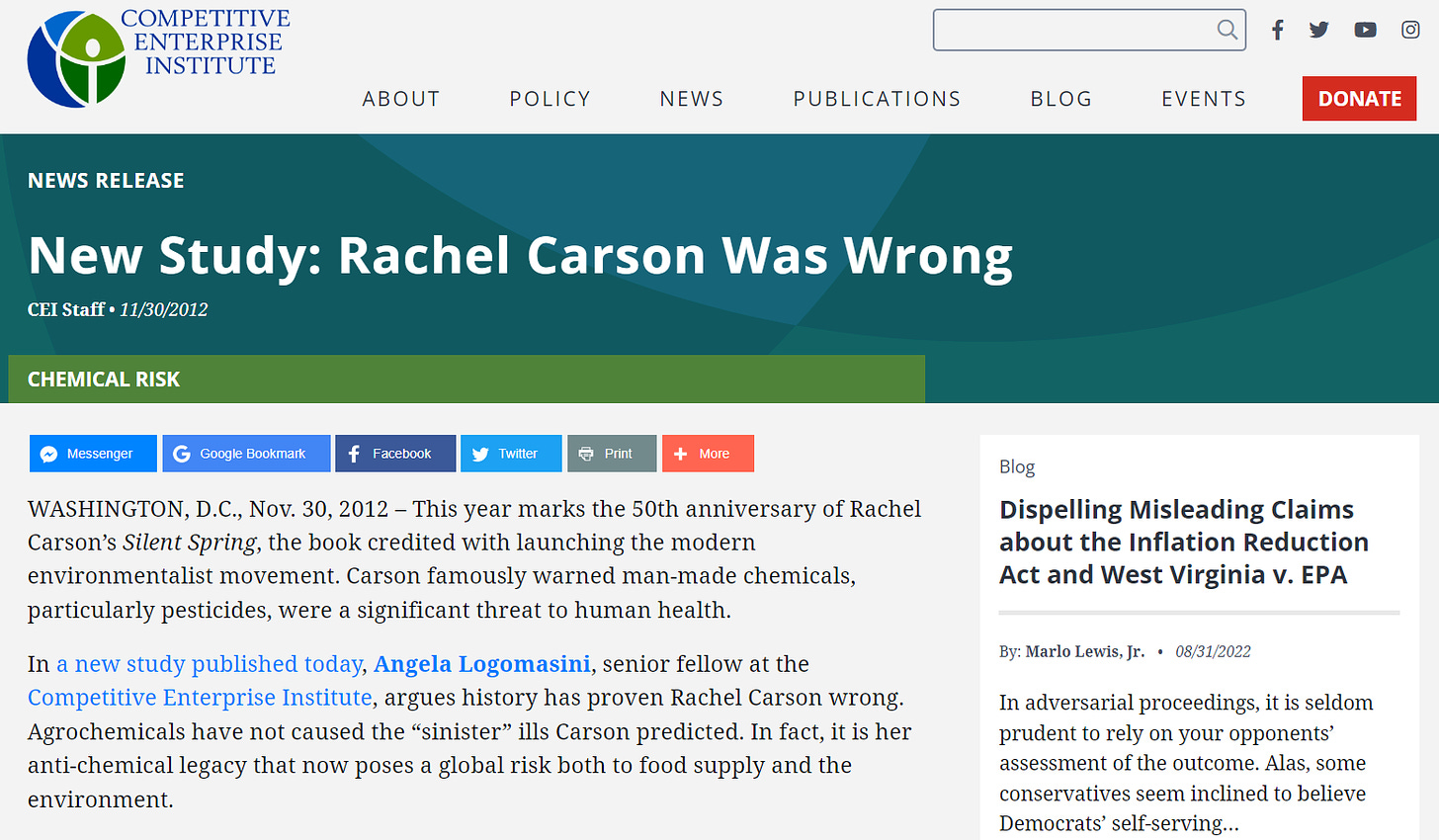Sustainable use founding father at denier’s conference: Science is bad, business is good, animal rights are dangerous
Grahame Webb blamed conservation failures on “people from a scientific background” and called animal rights “very dangerous” at a conference hosted by Center for Private Conservation.
Center for Private Conservation was a project of Competitive Enterprise Institute, an extremely prolific climate change denial organization. Given the relationship between sustainable use activists and denial organizations, it should come as no surprise that Grahame Webb was a featured speaker at Center for Private Conservation’s conference titled Conservation Through Commerce.
Grahame Webb is no ordinary sustainable use activist though, he was one of the founding fathers of the concept of sustainable use at the IUCN and made a career out of farming crocodiles and selling their skins to the luxury fashion industry. While many would label Webb a scientist, he is first and foremost a businessman.
Webb’s propensity towards business was highlighted in his speech at Conservation Through Commerce. When referring to the failures of conservation, Webb stated that organizations like the IUCN “went off on a tangent, largely with people from a science background, not people from a business background.”
Because if there is anything that we’ve learned from environmental issues, scientists are at fault and business people are our saviors. Just look at how corporations have solved climate change!
Webb tried to develop a narrative that conservation was going off the rails during the 1960s and was put back on track during the 1980s thanks to business-minded folks. This was a bit of revisionist history that gives legitimacy to the sustainable use movement.
The 1960s were a period of change from social and environmental perspectives. The US saw a large-scale emergence of the civil rights, feminism, and anti-war movements while Rachel Carson’s Silent Spring ignited the environmental movement.
Some power was given to marginalized communities and the public finally woke up to the destruction caused by large corporations. This time period instilled fear into the hearts and minds of the country’s rich and powerful men.
But this would all be reversed in the 1980s. Reagan and Thatcher came to power in the US and UK, bringing with them the principles of neoliberalism and unfettered capitalism.
This history runs contrary to Webb’s understanding.
Webb’s praise of a business approach in conservation during the 1980s fails to take this into account. But, again, he is a businessman.
People with a “science background” weren’t the only thing that worried Webb though. He was also very concerned with the existential threat of… animal rights.
“I am basically worried about the whole issue of animal rights, animal welfare, and conservation as three separate issues, and I get very worried about animal rights. I think it’s a very dangerous, theoretical issue. Once you start drawing parallels and saying people are at the same level as animals, the question arises as to where you put the people.”
Animal rights activists have long been a scapegoat for any person or corporation trying to inflict pain and suffering on animals in the name of profit. Webb falls into this category of profit over animal life - no one could argue that crocodile farming for the luxury fashion industry does not contain some level of pain and suffering for those crocodiles.
[The American hunting lobby sought an alliance with Big Tobacco against animal rights activists. Read more about that here.]
Webb’s revisionist history and denigration of scientists and animal rights activists is precisely why a denial organization like Competitive Enterprise Institute would have him partake in a conference hosted by Center for Private Conservation. There is a reason why if you look up Conservation Through Commerce on the Competitive Enterprise Institute website you will find it next to an article by climate change denier Myron Bell criticizing canceling an oil lease auction and a paper by Angela Logomasini denying the problem of ocean plastic pollution.
Logomasini, interestingly enough, appears to love pesticides and despise Rachel Carson.
Sustainable use activists like Grahame Webb and denial organizations like Competitive Enterprise Institute share a similar goal. They want to protect a capitalist system that benefits the rich and powerful, and they want to make some money along the way.
We need to stop letting sustainable use activists dictate the narrative, we need to expose them for what they are. They are grifters, they are deniers, they are profiteers. They are not conservationists.







